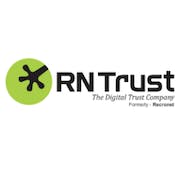Looking for the ultimate Customer Data Platforms buyers guide? Look no further! Our comprehensive guide covers everything from key features to pricing, helping you make an informed decision. Click now and discover the perfect CDP for your business.
In the ever-expanding world of marketing technology, Customer Data Platforms (CDPs) have emerged as a game-changing solution for businesses looking to improve their customer experience and drive revenue growth. CDPs offer a unified view of customer data from various sources in real-time, enabling companies to deliver personalized experiences that meet consumers' expectations and needs.
With the market's growing demand for advanced consumer profiling capabilities, it's not surprising that CDPs have become a buzzword in the industry. The global CDP market size is expected to increase from $4.8 billion in 2022 to over $19.7 billion by the end of 2027, with the travel and hospitality industry predicted to grow the faster due to its need for a better customer experience when dealing with customer data.
This guide aims to unravel the complexity surrounding CDPs, explain their benefits, and provide you with the tools you need to choose the right CDP for your organization. So, if you're ready to take your strategy to the next level and improve your bottom line, read on.
What is a CDP?
A CDP is a software tool that collects, manages, and organizes customer data from various sources, creating a unified and comprehensive view of the consumers. The primary goal of a CDP is to provide brands with a 360-degree view of their consumers, which can then be used to enhance customer experiences and outcomes. Here are some common use cases of a CDP:
Personalization
A CDP can enable brands to deliver personalized and relevant experiences to their buyers. By leveraging the data collected by the platform, businesses can create targeted marketing campaigns and personalized product recommendations.
Segmentation
A CDP can help firms create customer segments based on behavior, interests, transactions, and demographics. This helps businesses understand their audience better, develop targeted marketing strategies and improve customer retention.
Omnichannel marketing
A CDP can enable brands to deliver consistent and personalized experiences across multiple channels, such as social media, email, SMS, and website. This helps brands reach their buyers wherever they are and in a way that resonates with them.
Analytics
A CDP can provide organizations with deep insights into customer behavior, preferences, and outcomes. This helps companies understand the effectiveness of their marketing campaigns, improve their products and services, and identify new opportunities.
Journey mapping
A CDP can help companies map out the entire customer journey, from initial awareness to purchase and beyond. By understanding the customer journey, businesses can optimize each touchpoint and create a seamless and engaging experience for their target market. CDPs are used by various companies across industries, including ecommerce, financial services, healthcare and travel and hospitality. Companies that have a need to understand and engage with their buyers in a personalized and meaningful way can benefit from using a CDP.
What are the benefits of CDPs?
In today's digital age, businesses must effectively manage and utilize customer data to gain a competitive advantage. CDPs enable organizations to collect, unify, and analyze consumer information from various sources to create a single, comprehensive view of each shopper. By doing so, businesses can better understand their buyers and use that knowledge to deliver more personalized, targeted marketing experiences. Here are some of the key benefits of utilizing a CDP for your business:
Improved data management: A CDP enables organizations to collect, unify, and manage customer data across various channels and systems, including CRM, social media, email marketing, and website analytics. By integrating this data into a single marketing platform, businesses can gain a holistic view of their buyers, which allows for more effective data-driven decision-making.
Enhanced customer experiences: With a CDP, marketing teams can analyze customer data to better understand their behavior, preferences, and needs, enabling them to deliver more personalized and relevant marketing experiences. This leads to improved customer retention, customer loyalty and satisfaction.
Increased operational efficiency: A CDP automates data integration and processing, eliminating the need for manual interventions and reducing the likelihood of errors. This results in more accurate, consistent, and timely data, which improves overall operational efficiency and reduces costs.
Better marketing performance: With a CDP, businesses can optimize their marketing campaigns by targeting the right audience with the right message at the right time. This leads to increased conversion rates and reduces wasted ad spend.
Improved data privacy and security: A CDP adheres to strict data privacy regulations and offers robust security features to ensure the protection of customer data. This helps maintain trust and protects businesses from reputational damage.
In summary, a CDP integrates customer data from various sources and delivers a comprehensive view of each buyer, enabling businesses to better understand their buyers, deliver more personalized marketing experiences, increase operational efficiency, improve marketing performance and ensure data privacy and security. By implementing a CDP, businesses can gain a competitive edge in a digital age where customer data is increasingly valuable.
The key features of CDPs your organization needs
CDPs have become increasingly prevalent over the past few years, and for a good reason. As more companies adopt a customer-centric approach, the need to manage customer data effectively becomes more critical than ever before. In this section, we'll be exploring ten common features of CDPs that make them a vital tool for businesses across industries.
1. Data collection
CDPs allow businesses to collect customer data from various sources, including social media, email, website interactions, and more. This feature enables organizations to create a unified view of buyers and their behavior and subsequently use this information to deliver more personalized experiences.
2. Data unification
With data collected from multiple sources, CDPs provide a way to unify this data to create a complete picture of the consumer. This feature goes beyond just merging data, but also involves cleaning, standardizing and resolving consumer identities across multiple channels and devices.
3. Audience segmentation
Data segmentation is the process of grouping consumers based on various attributes, interests, and behaviors. CDPs allow businesses to segment their customer base, which helps in targeting messages and delivering personalized experiences based on groups and individual preferences.
4. Personalization
CDPs provide businesses with the tools to create and deliver personalized experiences across multiple channels, including email, websites, social media, and more. Personalization helps to increase customer engagement and ultimately drives more conversions.
5. Analytics
CDPs allow businesses to analyze customer data to gain insights into their behavior, preferences, and attributes. By analyzing this data, organizations can make data-driven decisions to optimize their marketing campaigns, streamline their operations, and improve their overall customer experience.
6. Real-time updates
Updates fuelled by real-time data allow businesses to capture consumer interactions and preferences as they happen. With CDPs, businesses can react immediately to changes in customer behavior, allowing them to deliver personalized experiences in real-time.
7. Integration
CDPs provide integration capabilities with various marketing channels and systems, including marketing automation, email marketing, CRM systems, and more. By integrating these systems, businesses can streamline their operations and deliver a more consistent customer experience across multiple channels.
8. Data privacy and security
As customer data becomes more critical and valuable, businesses need to ensure that their data remains private and secure. CDPs provide various security and privacy features like data encryption, access controls, and compliance standards.
9. Scalability
As the business grows, so does the amount of customer data they collect. CDPs provide scalability and flexibility to handle data growth, ensuring that businesses can continue to deliver personalized experiences as their customer base expands.
10. Automation
CDPs allow businesses to automate various marketing processes, including audience segmentation, messaging and more. By automating some of these processes, businesses can save time and resources and focus on delivering a better customer experience.
In conclusion, CDPs are becoming a vital tool for businesses across industries. They provide a unified, comprehensive view of customer behavior, allowing businesses to deliver more personalized experiences and ultimately drive more conversions. From collecting and unifying data to audience segmentation, personalized campaigns, analytics and more, the features of CDPs are providing businesses with the tools they need to stay ahead of the competition.
Key considerations when assessing CDP solutions
In today's digital world, businesses need to have a clear understanding of their buyers to stay ahead of the competition. This is where CDPs come in. CDPs offer a consolidated view of customer data, including their behaviors, preferences, and interactions with your business. When considering purchasing a CDP, there are a few factors that businesses should take into account. Firstly, it's important to consider your business's specific needs and goals. Different CDPs will have different features and capabilities, so it's important to do your research and find the one that will best meet your company's needs. Another important factor to consider is data security and privacy compliance. Customer data is highly sensitive and must be protected at all times. Ensuring that the CDP you choose is compliant with data protection regulations, such as GDPR and CCPA, is crucial. It's also important to consider the scalability and flexibility of the CDP. As your business grows and your needs change, you don't want to find yourself outgrowing the capabilities of your CDP. Look for a platform that can grow and adapt with your business. Integration is another key consideration. A good CDP should easily integrate with your existing tech stack and be able to consolidate data from multiple sources. This will help ensure a seamless implementation and a more complete view of your target market. Lastly, budget is an important factor to consider. CDPs can vary widely in price, so it's important to choose one that fits within your budget while still meeting your needs. In summary, when choosing a CDP, businesses should consider their specific needs, data security and privacy compliance, scalability and flexibility, integration capabilities, and budget. By carefully considering these factors, businesses can choose a CDP that will help them gain a deeper understanding of their audience and stay ahead of the competition.
The biggest trends in CDPs
The next few years will bring significant innovations in CDP technology. One major trend to watch out for is the use of artificial intelligence (AI) and machine learning. Not only will CDPs have AI-integrated and machine learning tools, but the integration will also help marketers identify and interpret patterns and trends, improving their marketing strategies.
Additionally, the emergence of data privacy regulations has forced CDPs to comply with necessary privacy guidelines, ensuring responsible data use. As for user experience, simpler interfaces and enhanced customization options will be prioritized to provide more personalized customer experiences. Another trend to keep an eye on is the application of blockchain technology, which can strengthen customer data security and help foster transparency.
With these emerging CDP trends, businesses can expect a significant improvement in their customer data management and enhanced marketing strategies.







